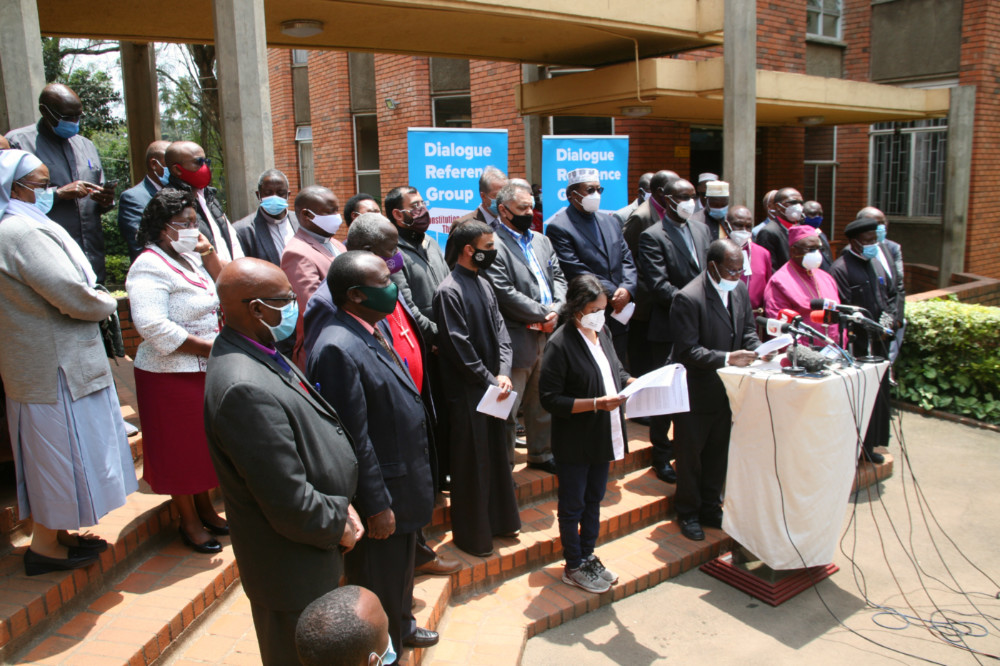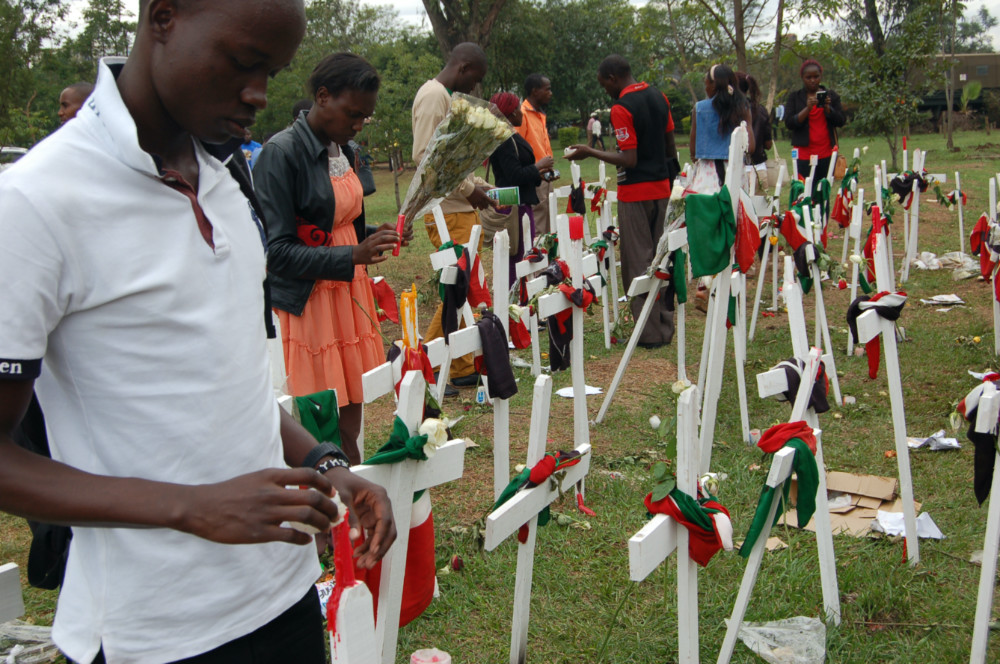Nairobi, Kenya
RNS
The majority of this East African country’s population is Christian, and churches are free to proliferate. It’s also not unusual to find preachers setting up loudspeakers to call people to Jesus. Christian literature is sold on the open street, and phrases like “Praise God” and “Amen” are part of the common greetings.
But recently, Kenya was listed by the US-based anti-persecution watchdog Open Doors as one of the countries where it is difficult to be Christian. According to the group, persecution of Christians has been spreading, especially in the predominantly Muslim north-eastern and coastal regions.
“The threats are there,” the Rt Rev David Mutisya, Anglican Bishop of the Diocese of Garissa, in eastern Kenya, told Religion News Service. Mutisya said the challenge for both Muslims and Christians is to be creative about finding ways to co-exist without tension.

Kenyan religious unite recently under a lobby group known as the Dialogue Reference Group to speak about issues affecting the country. PICTURE: RNS/Fredrick Nzwili.
Christians who have converted from Islam live under constant threat of attack, even from close relatives, according to the organisation. Many have fled their homes to live close to other Christians where they can feel safe.
At the same time, al-Shabaab, the Somalia-based al-Qaeda affiliate in East Africa, has been posing a bigger threat. Al-Shabaab militants have reportedly infiltrated local cities and villages and constantly monitor the activities of Christians in these areas.
In Somalia, the group has been carrying out amputations, flogging women in public and executing those who break its extreme version of Shariah law. It is now attempting to export its tyrannical strain of Islam to Kenya, frequently attacking Christians and churches, as well as security forces near the border.
While al-Shabaab has flagrantly attacked Christians – most memorably in a 2015 incident where 148 Christians were separated from Muslims and killed after being forced to recite Muslim prayers, Rev Wilybard Lagho, a Roman Catholic priest and the former vicar general of the Archdiocese of Mombasa, said that in other cases, “it is difficult to draw the boundary whether some of the assaults are religious or political.”
He cited recent attacks in the county of Lamu, where Christians who had migrated from central Kenya were killed and their churches destroyed.
According to the report by Open Doors, local officials charged with protecting residents often turn a blind eye to violence.
“As a country we have not legislated enough laws on religious freedom. There are no parliamentary acts on the subject. The constitution does not say how the courts or the police should handle cases of religious persecution or how protection should be provided,” said Lagho. “Sometimes, it is left at the discretion of the shepherds [clerics] to provide some cover. It is a delicate matter that is rarely publicised.”
But some Muslim leaders disagree with Open Doors’ findings.
“We have one message, whether Muslims or Christian. Our origin is the same. We are Abrahamic faith,” said Shaykh Ali Juma, the chairman of Supreme Council of Kenya Muslims North Rift Region. “I don’t think the report is true.”

Youth light candles at Freedoms Corner to remember students killed by al-Shabaab at Garissa University College in April, 2015, in Garissa, Kenya. PICTURE: RNS/Fredrick Nzwili
While he admits that some people have been forced to relocate after converting to Christianity, Juma said it is normal for families to disagree on matters of faith. “One person may not agree with the rest and is forced to stay away. This happens for a period, but they finally agree,” he said.
At the same time, Juma called for education and sensitization in local communities about the commonalities between the Quran and the Christian Bible.
Similarly, faith leaders try to focus on issues that unite Muslims and Christians, such as food security and education.
“When we go looking for food during famines, everyone, regardless of their faith, gets a share,” said Mutisya. “We have a Christian school – one of the best in the region – which admits students from all faiths. We also employ Muslim teachers and workers.”
By attending to the population’s needs, not their differences, he said, faith leaders can ameliorate the friction between the faiths.






